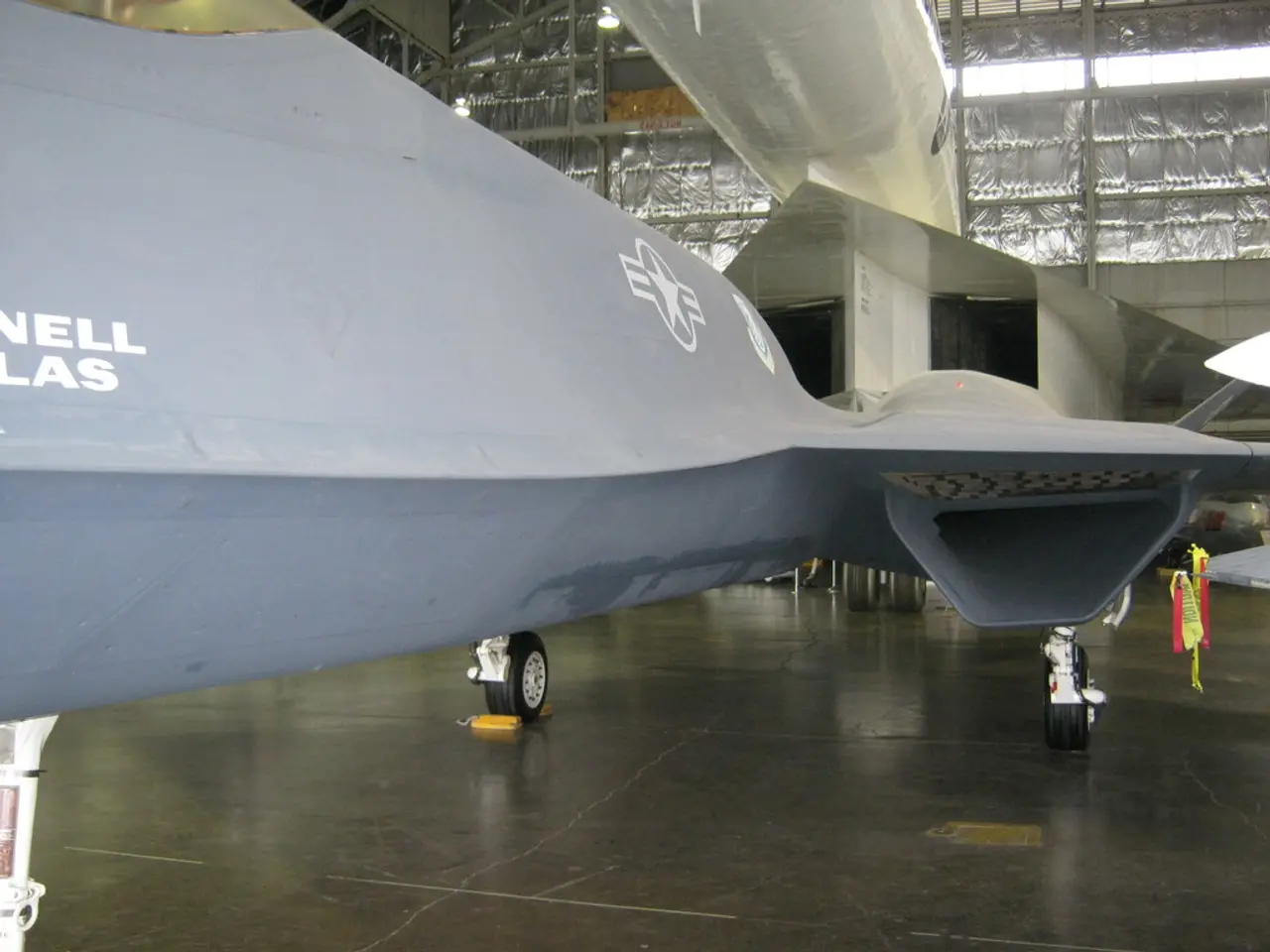AI integration in airline ticket pricing sparks apprehensions
Marlon Hyde, a reporter for member station WABE in Atlanta, delves into Delta Air Lines' increasing use of artificial intelligence (AI) for dynamic pricing.
The U.S. senators have sent a letter to Delta, seeking more details about the AI expansion. They want answers to their questions by August 4.
Delta Air Lines plans to utilize AI for pricing airfares on about one-fifth of their domestic flights by the end of the year. According to Laurie Garrow, a partner at the air transportation lab at Georgia Tech, this AI technology is viewed as the wave of the future.
The AI tool will consider factors such as booking time, destination market, weather, and past baggage handling when determining prices. However, this approach has raised significant concerns about customer privacy.
Some U.S. lawmakers and consumer advocates worry that AI might use troves of personal information to engage in price discrimination, adjusting fares not just based on general market conditions but also on individual consumer profiles. This has led to criticism that such "surveillance pricing" could exploit consumers' personal circumstances—such as emergencies or special situations—to charge them higher prices.
Delta has publicly denied using personal data for individualized pricing, emphasizing that its AI pricing does not rely on personal information to charge different customers different prices. Nonetheless, skepticism remains among consumer protection advocates and lawmakers who are proposing legislation to prevent companies from basing prices on consumers’ personal data.
Areonna Sims, a student at the University of Kentucky, expresses concern over the high cost of a Delta flight she recently took for spring break. If Delta's AI tool could detect her student status, she suggests it might offer her a more affordable ticket price. However, the airline's AI tool will not consider a customer's financial situation or income when determining ticket prices.
Ian Brown, a 21-year-old student, also expresses concern that Delta's AI pricing tool might incorrectly assume he can afford higher prices based on his frequent flying. He believes that the AI tool should not determine ticket prices based on his ability to pay.
Laurie Garrow explains that the AI technology being used by Delta is an evolution of the dynamic pricing model airlines have been using for decades. It acts like a "super analyst," simulating real-time market conditions 24/7 to optimize price points on a flight-by-flight and passenger-by-passenger basis. Delta intends to eventually eliminate fixed prices entirely, offering individualized fares based on AI calculations, which could lead to more personalized yet potentially higher fares for travelers who are assessed as willing to pay more.
In summary, Delta's use of AI for dynamic pricing is revolutionising airfare pricing by enabling more granular, real-time price optimization. However, it simultaneously provokes ongoing debates about privacy and fairness in pricing practices. As the use of AI in pricing continues to grow, these concerns are likely to remain at the forefront of discussions.
[1] Delta Air Lines Press Release, 2021 [2] U.S. Senate Committee on Commerce, Science, and Transportation Hearing, 2021 [3] Air Transport Research Society Journal, 2021 [4] NPR Transcripts, 2021 [5] Georgia Tech News Center, 2021
Technology advancements in the news have highlighted Delta Air Lines' expansion of artificial intelligence (AI) for dynamic pricing. This move, set to impact about one-fifth of their domestic flights by the end of the year, is viewed as an evolution of traditional dynamic pricing models in the transportation industry. Some lawmakers and consumer advocates, however, have expressed concerns about AI potentially using personal information for price discrimination, provoking debates about privacy and fairness in AI-driven pricing practices. These discussions are likely to persist as AI continues to shape the landscape of technology and transportation.




